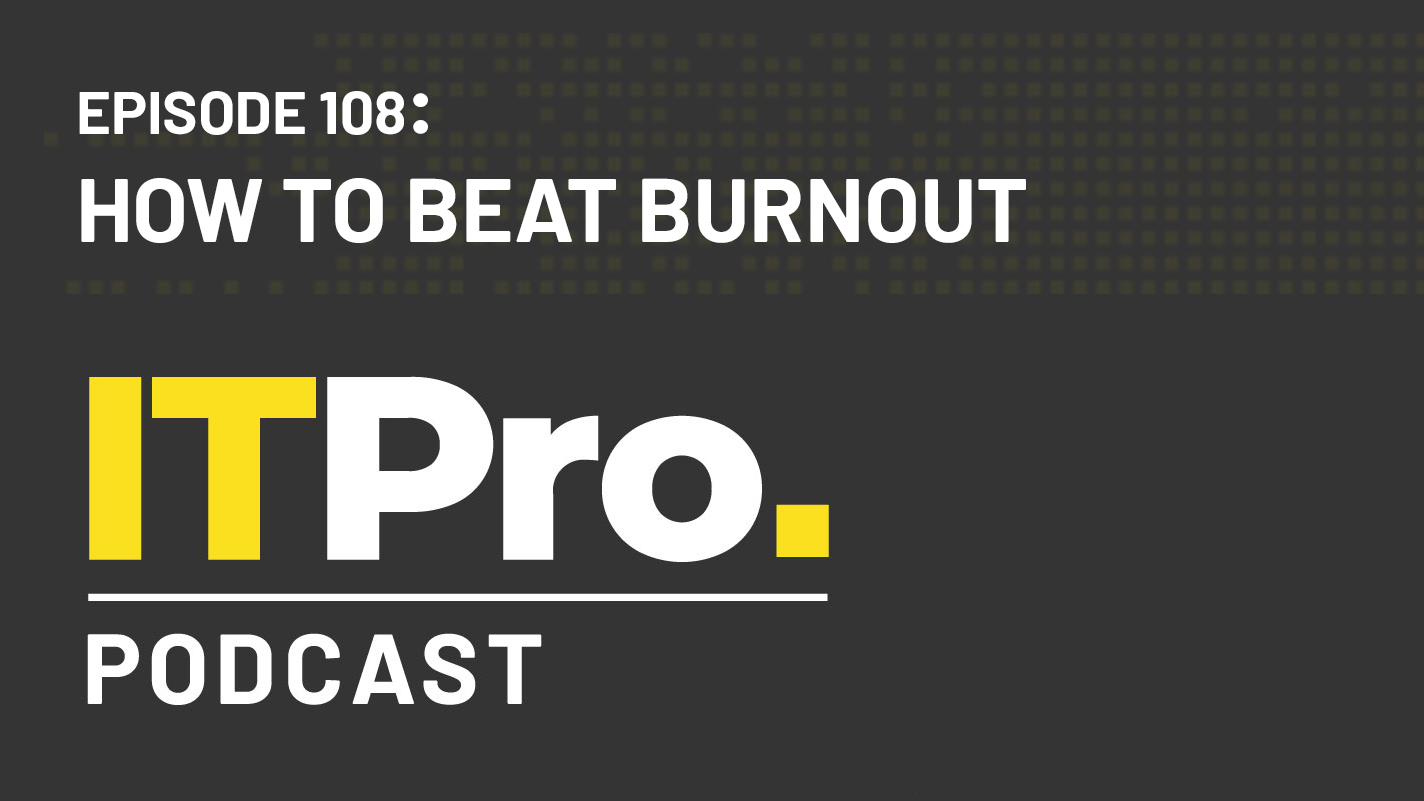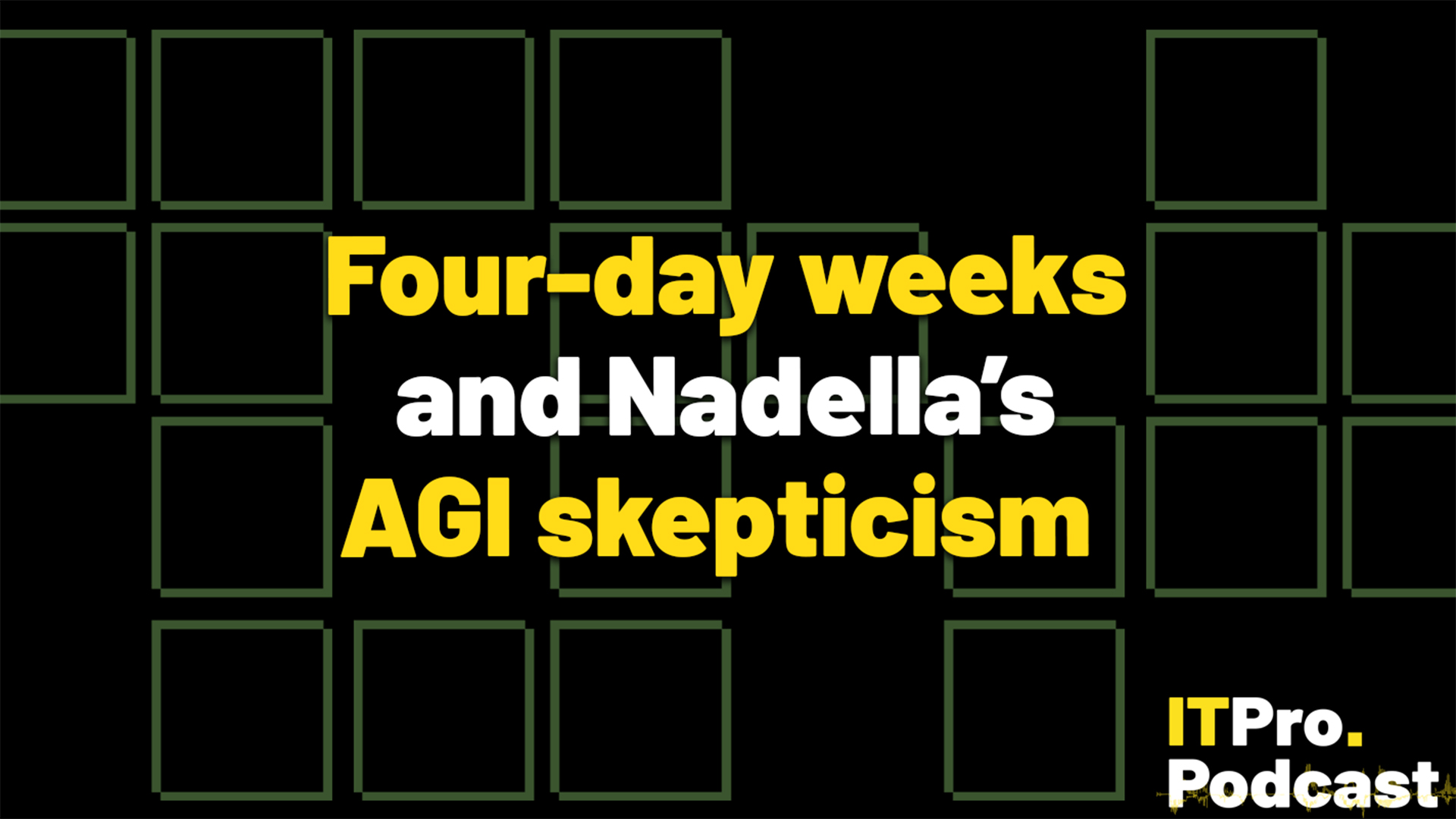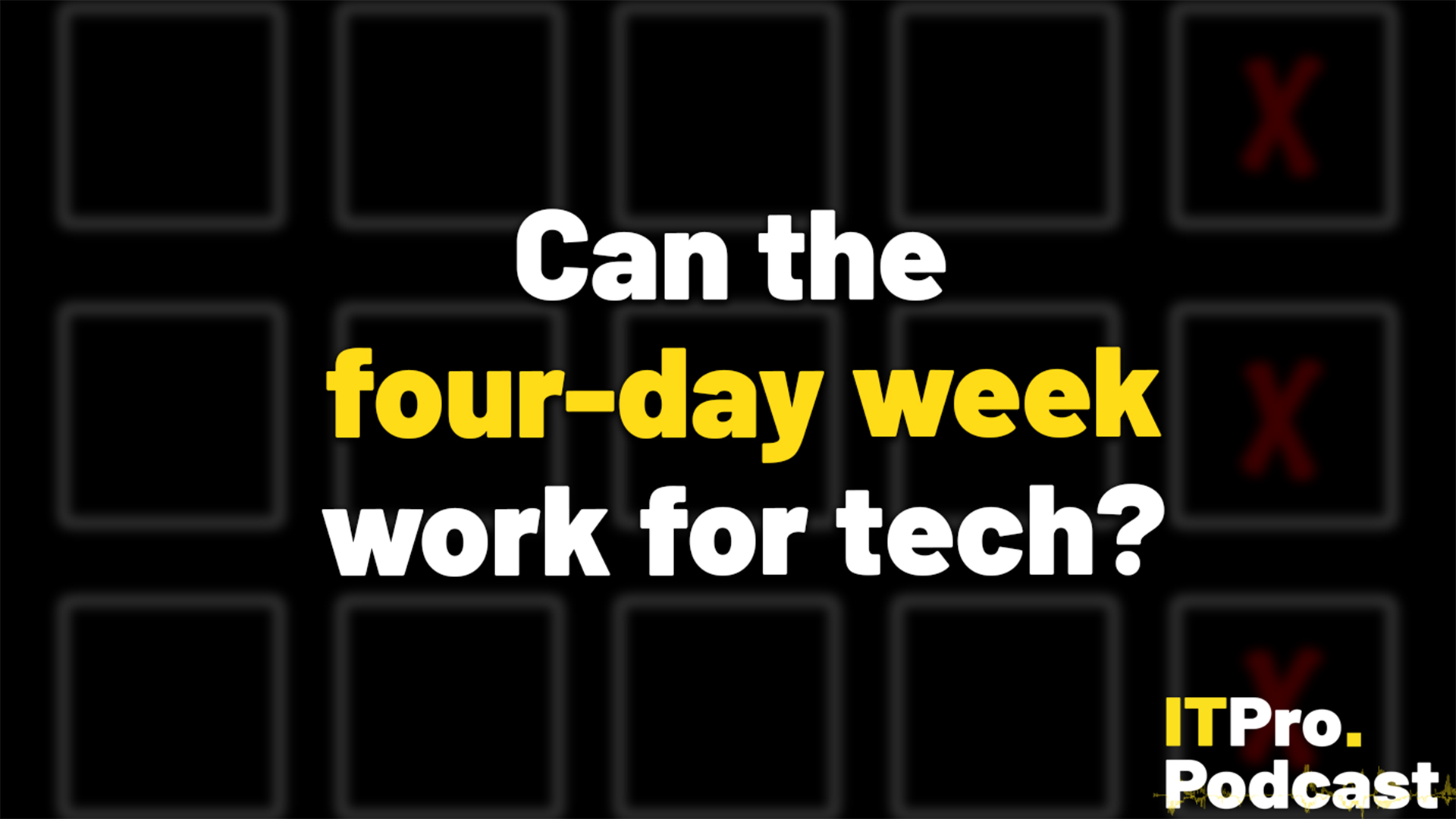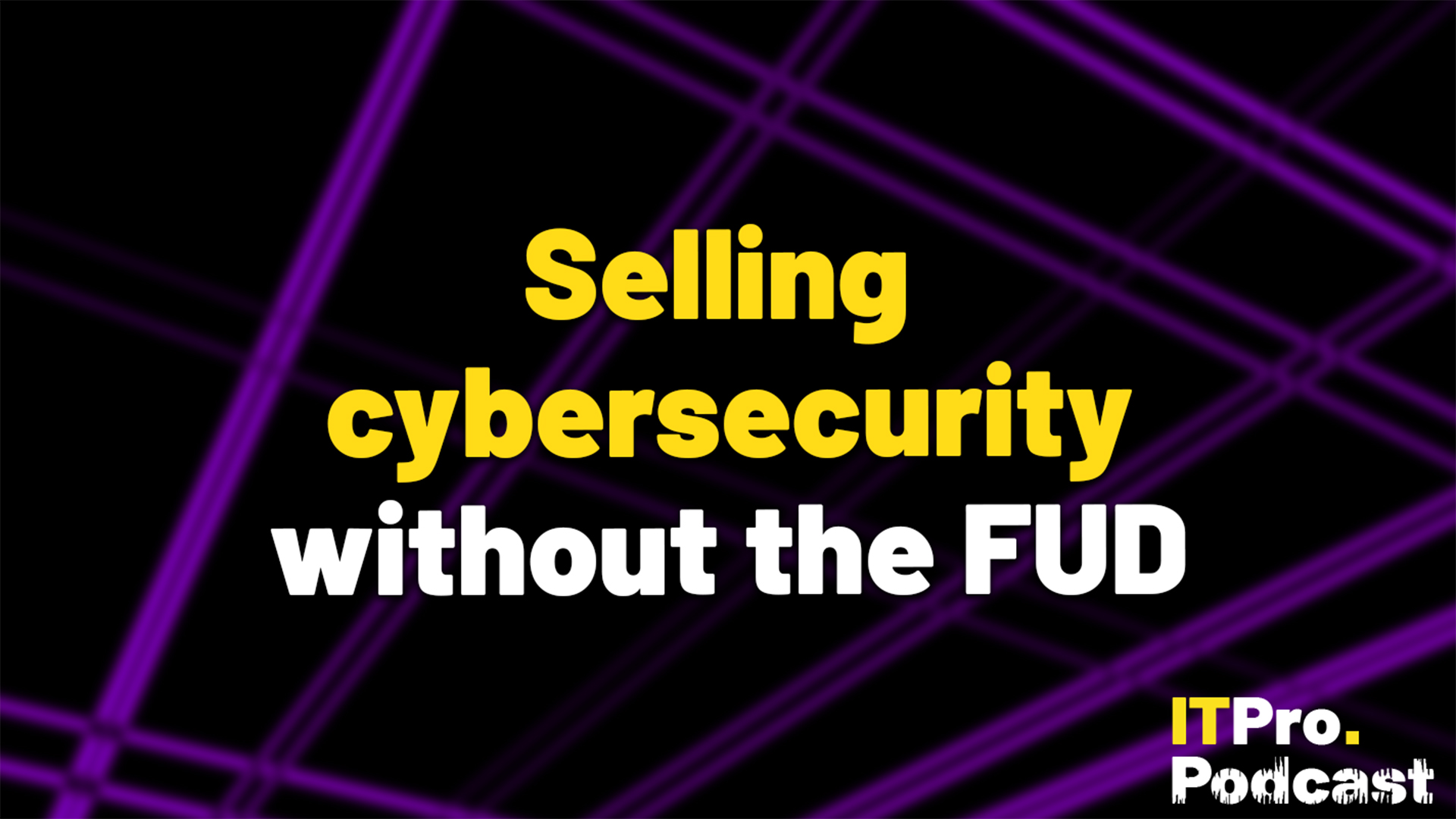The IT Pro Podcast: How to beat burnout
Unmanaged stress can be a serious problem - but there are warning signs to look out for

Burnout is a major problem within the IT industry. Technology professionals are frequently overworked and under-resourced, and the buildup of unmanaged workplace stress can have severe consequences for both the mental and physical health of workers. While some stress is unavoidable - particularly in fast-paced industries like IT - there are ways that managers and employers can help their staff avoid burning themselves out.
This week, we’re joined by Karen Worstell, senior cyber security strategist at VMware and former CISO for Microsoft and AT&T, to discuss her own experiences of dealing with burnout, as well as how to spot the warning signs of an impending crisis and how to address the problem.
Highlights
“I had an opportunity to speak with [a former colleague] last year, and he said, my work literally broke my heart. And I was like, what do you mean, and he, in his mid-50s, ended up having to have a heart transplant because of unmanaged workplace stress.”
“I did the burnout thing again, at Microsoft, and that was kind of less severe, but more of a wake up call. I think there was a lot of emotional exhaustion going on there, and the circumstances that we had. I also, by this time, didn't sleep a lot. And so when that finally came around, I had these voices I heard at night telling me what a fake I was. And it was so vivid, and I got up. I remember getting out of bed and walking around the house and going, Okay, wait a minute, I'm not dreaming and these voices are following me. And now I'm talking back to them. So I called a psychiatrist who told me the next day, he says, you know, you're absolutely fine. There's nothing really wrong with you, you're not getting enough sleep. Then he wrote out three prescriptions and handed them to me and said, ‘Welcome to Microsoft; you have no idea how many people I see here just like you.’”
“My number one red flag that tells me that burnout is at work in the workplace is cynicism. That there's a sense this irrational belief that nobody has the best interests of the company, or the people who work there at heart. So yeah, those things combined together can make for a pretty dangerous combination.”
Read the full transcript here.
Footnotes
- 83% of developers suffer from burnout
- Turn on, log in, burn out
- How to boost productivity without risking burnout
- CISOs are missing holidays due to excessive overtime
- How do we fix security's toxic culture?
- The IT Pro Podcast: Staying sane while working from home
- Coronavirus lockdown gave me a new perspective on the importance of mental health
- The dangers of nighttime Slacking
- How to be a great motivator
- What has the move to remote working meant for employee monitoring?
- Monzo co-founder leaves company after mental health 'struggle'
- Remote workers suffered most mental distress during pandemic, report claims
- Union urges ministers to give remote workers a 'right to disconnect'
- How to disconnect over the Christmas period
- Working from home has created an "overtime epidemic"
- How can we protect the mental health of cyber security staff and CISOs?
- Eight tips for reducing screen fatigue while working from home
Subscribe
- Subscribe to The IT Pro Podcast on Apple Podcasts
- Subscribe to The IT Pro Podcast on Google Podcasts
- Subscribe to The IT Pro Podcast on Spotify
- Subscribe to the IT Pro newsletter
- Subscribe to IT Pro 20/20
Get the ITPro daily newsletter
Sign up today and you will receive a free copy of our Future Focus 2025 report - the leading guidance on AI, cybersecurity and other IT challenges as per 700+ senior executives
ITPro is a global business technology website providing the latest news, analysis, and business insight for IT decision-makers. Whether it's cyber security, cloud computing, IT infrastructure, or business strategy, we aim to equip leaders with the data they need to make informed IT investments.
For regular updates delivered to your inbox and social feeds, be sure to sign up to our daily newsletter and follow on us LinkedIn and Twitter.
-
 Cleo attack victim list grows as Hertz confirms customer data stolen
Cleo attack victim list grows as Hertz confirms customer data stolenNews Hertz has confirmed it suffered a data breach as a result of the Cleo zero-day vulnerability in late 2024, with the car rental giant warning that customer data was stolen.
By Ross Kelly
-
 Lateral moves in tech: Why leaders should support employee mobility
Lateral moves in tech: Why leaders should support employee mobilityIn-depth Encouraging staff to switch roles can have long-term benefits for skills in the tech sector
By Keri Allan
-
 Four-day weeks and Nadella's AGI skepticism
Four-day weeks and Nadella's AGI skepticismITPro Podcast As the Microsoft chief casts doubt on ultra-advanced AI systems, a famous security blogger has fallen victim to a classic attack
By Rory Bathgate
-
 Creating space for women in tech
Creating space for women in techITPro Podcast Tech's huge gender divide can only be tackled with more welcoming, proactive sectoral efforts
By Rory Bathgate
-
 What is the EU's AI plan?
What is the EU's AI plan?ITPro Podcast As the EU moves to enable AI innovation, it could end up striking the perfect balance between regulation and public support – especially as US AI laws become more complex
By Rory Bathgate
-
 The trends we’re watching in 2025
The trends we’re watching in 2025AI for security and sovereign cloud could be top driving forces in the coming year
By Jane McCallion
-
 The 2024 that didn't happen
The 2024 that didn't happenThese are the megatrends of the year that failed to materialise
By Jane McCallion
-
 What DORA means for business
What DORA means for businessITPro Podcast Stringent requirements for third party monitoring and ongoing resilience testing could help put businesses on the best track for security
By Rory Bathgate
-
 Can the four-day week work for tech?
Can the four-day week work for tech?ITPro Podcast As the four-day week gives Icelandic workers a boost, we also look at whether AI coding is up to scratch – and if OpenAI can keep its funding momentum
By Rory Bathgate
-
 How to sell cyber security without the FUD
How to sell cyber security without the FUDITPro Podcast A trusted network of cybersecurity marketing professionals can help professionals cut through at the board level
By Rory Bathgate
